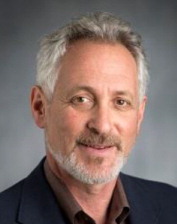How and when did you become Editor of the journal?
Jon Grahe: I became Managing/Executive Editor of Journal of Social Psychology (JSP) in August 2012 after serving as a Consulting Editor for the decade previously.
Arthur Stukas: I began as an EE in August 2012 after having been a long-standing Consulting Editor and peer reviewer before that.
Randall Gordon: I served as a Consulting Editor from about 1997 to 2000, Exec. Ed. from 2000.
Robert Scherer: I served as an ad hoc reviewer in the 1990s, became a CE similar to Randy and then an EE from 2000 (similar to Randy).
What are the main achievements of the journal since you took over?
Jon Grahe: We adopted Open Science Badges to reward increased research transparency. We are the only journal that is awarding “peer-reviewed” badges, rather than “self-disclosure”.
Arthur Stukas: Improving the Journal is a long-term goal and we have sought to attract high quality articles from both new and established researchers and to use the peer review and editorial processes to improve each manuscript that comes in. I think we are succeeding in boosting the overall quality of our content and we need to continue with our marketing efforts to get the word out so that researchers know to come to the Journal of Social Psychology to find theoretical and empirical advances that they can cite.
Randall Gordon: Raised standards for acceptance and increased the Impact Factor of the Journal.
Robert Scherer: Tighter review process, improvement in reviewers and submissions to the journal.
Which three factors have contributed most to the journal's success?
Arthur Stukas: (1) Utilising “desk reject” procedures to speed up our time-lines and to avoid unnecessarily burdening our reviewing team. (2) Refreshing our consulting editor board by bringing on new and active experts and letting those who no longer offer high-quality reviews go. (3) Encouraging established colleagues to send appropriate papers to us. (4) Offering constructive feedback to authors, even when their papers are not ultimately accepted creates goodwill.
Randall Gordon: More stringent standards for acceptance. More competent review board.
Robert Scherer: More rigorous review process, tighter and clearer standards for review, more competent reviewers and CEs.
What are the biggest challenges facing your journal today?
Jon Grahe: There is a Catch-22 situation with journals trying to improve their impact. Authors vying for tenure and promotion are expected to publish in only the top journals, but second and third tier journals cannot be more impactful unless top researchers submit manuscripts for review/publication
Arthur Stukas: Finding relevant and expert reviewers who turn around their reviews in a timely fashion is a challenge for every journal. We are only as good as the papers that are submitted to us and we do have a large proportion of papers that are not of high quality being submitted; processing these takes time.
Randall Gordon: Ditto :).
Robert Scherer: Ditto to Randy's “ditto” for Art and Jon.
If you could give a word of advice to a new journal Editor, what would it be?
Jon Grahe: The process of role-transition from author to editor can be challenging. After spending so much of our career following advice from reviewers and appeasing editors, it can be challenging to fully trust decisions at first.
Arthur Stukas: I agree that it was difficult to move from advising on a final decision to actually making it, especially when peer reviewers do not agree with each other. I also was surprised at the level of personal interaction that some authors engaged in after receiving decisions, as well as the number of potential conflict of interest situations that arose (when friends and colleagues submitted papers to the journal). My strategy has always been to avoid being the editor in charge of papers by friends and close colleagues and of course to respond politely and honestly to any emails I receive from authors. Keeping workload under control by having a steady and regular schedule for reviewing articles is important.
Randall Gordon: Again, ditto :). I remember my two Managing Editors at both JSP and JP helping me make that “transition”.
Robert Scherer: Have a sense of humour, remember that you are also an author at times and treat the authors with respect, do not be afraid to make difficult decisions.
What is the strangest thing that has happened to you as Editor of the journal?
Arthur Stukas: I think authors should realize that when they send us papers that are rejected by other journals, it just may be possible that we send them to the same reviewers. So, they should seek to improve their manuscripts based on the feedback they received at that other outlet rather than simply sending the same paper out to us.
What do you hope the journal will achieve in the next five years?
Jon Grahe: Our journal is the oldest social psychology journal and we want to be a leader in the field with greater impact than it currently has. Over the next five years, I want to see us double our impact ratings. I also hope that our early adoption of Open Science badges will be a good model for others and that data and materials are regularly shared as part of the publication process.
Arthur Stukas: It would be very nice if we had the opportunity to publish high-quality studies that fit into clearly identified programs of research by both new and established scholars. I think we could be a key outlet for one and two study papers that advance theory, offer applied and translational extensions, and capture attention by linking to world events and social problems.
Randall Gordon: Certainly we want to continue to increase the impact of JSP. It would be nice to move into the center of the middle tier of social psychology journals. This will be incumbent upon receiving higher quality submissions from researchers involved in programmatic work.
Robert Scherer: Enhanced recognition through bibliometric indices and other qualitative outcomes.
What are the advantages and challenges of working together as joint Editors?
Jon Grahe: The big advantage includes more support. This support is manifested in dividing the workload and having more expertise covering more topics as well as social support dealing with difficult authors or reviewers. Particularly as a brand new editor, having other people to ask questions of and see how they addressed these issues was quite beneficial.
I think the biggest challenge is that maintaining equal standards and expectations across four disparate minds. This challenge is amplified by the fact that our executive editor meetings cross four different time zones and we typically meet at the same time on different days because three of us are in the USA and one is in Australia. As such it can be challenging to stay connected as a group and this makes it difficult to plan special activities and promotions in addition to trying to maintain an even set of standards.
Arthur Stukas: I agree with what Jon has said and can add that the decision to have Jon serve as both Managing Editor and Executive Editor (attracting more reimbursement, of course) has been a good and important one. He is able to see the big picture for the Journal and, despite any challenges involved with the rest of the team of Executive Editors having different types of expertise, skills, and preferences, Jon has been able to negotiate our workloads (dividing up the submissions equally and/or according to our interests) and to provide us feedback about how many submissions we are getting, the ease or difficulty of attracting reviewers, the size and quality of our editorial board and so on. Having regular phone conferences has been helpful to iron out any major concerns and to develop strategies (for guiding reviewers to provide better reviews, for raising the impact factor, for changing submission requirements, etc.). As someone new to the editing role, it was tremendously helpful to join a team with two established and senior editors (Randy Gordon and Bob Scherer) who have been ready and willing to offer guidance and suggestions on a range of typical and unusual situations that arise on the job. I do not think I would like the role half as much if I were the sole Executive Editor.
Randall Gordon: I could not imagine being a sole EE; we need each other's support. I want to echo Art's words on Jon's roles as both ME and EE. Even the best non-academic ME (and I have worked with many good ones over the years), could never be expected to have the relevant expertise of a Ph.D. in social psychology. That knowledge is so VERY important for the job tasks of a managing editor. I know we are all very grateful for Jon's willingness to lend his expertise to all those tasks. As Jon mentioned in his response, communicating together in real-time has been somewhat challenging, but we are getting better with the technology. I would say one additional challenge would be replacing EEs. However, the last two have worked out really well.
Robert Scherer: The biggest challenge is one of “calibration” in terms of similar editorial expectations for what a publishable manuscript should be. The advantages to having multiple executive editors include the ability to share ideas and refine the editorial review process together from a variety of perspectives. Also, one person alone would not be able to make all the decisions to publish or not publish a manuscript. The field is too complex and diverse for one executive editor to be able to understand all of the different aspects of social psychology. We are fortunate to have a multidisciplinary team of executive editors which only enhances the overall quality of the research that we publish.
Additional information
Notes on contributors

Randall A. Gordon
Randall A. Gordon, University of Minnesota, Duluth.

Jon E. Grahe
Jon E. Grahe, Pacific Lutheran University.

Robert F. Scherer
Robert F. Scherer, University of Dallas.

Arthur A. Stukas
Arthur A. Stukas, Jr., La Trobe University.

